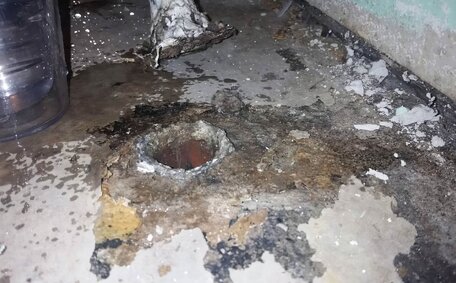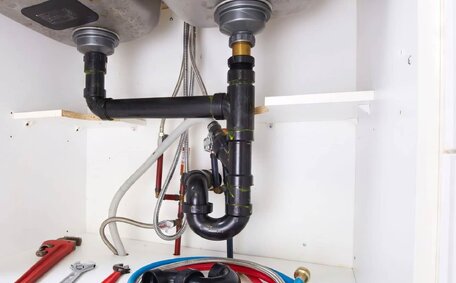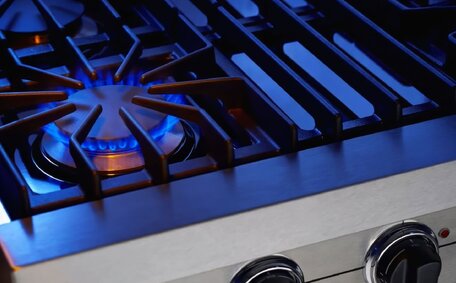Introduction to Failing Water Heaters
Consistent hot water access is essential for daily activities like dishwashing, laundry, and showering. Recognising signs of wear and tear can signal when your water heater is nearing the end of its lifespan, indicating a possible need for replacement.
This article covers how to watch for common signals that indicate water heater failure is imminent. Catching problems early allows preventative maintenance to prolong a heater’s lifespan or install new hot water units before your water heater going out causes headaches.
You may notice increasing issues with your water heater such as rusty water, odd noises, and leaks, which can signal an impending catastrophic failure. Discover proactive steps to protect your hot water system. Read on to learn how to notice issues promptly, understand repair costs and options, and decide whether installing a new water heater makes the most sense.
How Long Do Water Heaters Typically Last?
On average, a well-maintained hot water heater can last between 8 to 10 years.
Areas with hard water make it difficult to get hot water due to more internal corrosion and mineral accumulation inside tank that shorten a unit’s functional life. Households using hot water in high volumes daily, or operating heaters beyond recommended temperature settings, often experience faster deterioration.
To maximize your heater’s lifespan, annually flush the tank to remove sediment, routinely replace anode rods, and keep thermostats set at approximately 49°C. Utilising water treatment systems can further extend your heater’s life and functionality, leading to potential cost savings. Recognising signs of deterioration can alert you to when a replacement may be necessary.
What Are Some Common Signs of Impending Failure?
There are several clear indicators, sign your water heater failing, that pinpoint when troubles are emerging and a unit is near the end of its functionality. Telltale signs include rusty water, strange noises, leaks around the unit, a lack of hot water, and odd smells.
Rusty or discoloured water from taps or during showers can indicate that your hot water heater is suffering from internal corrosion and rusting. As components deteriorate, rust flakes can enter the water supply. Strange gurgling, hissing, or rumbling noises also signal issues that are usually caused by a buildup of mineral deposits or failure of water heater tank components.
Small leaks around the tank’s connections and fittings, accompanied by a lack of hot water, could foreshadow an impending major leakage failure. And a lack of hot water, or tank could supply insufficient hot water for normal use, indicates heating problems. Additionally, If your hot water smells like rotten eggs, it may signify corrosion that can taint the water provided.
Subsequent sections delve deeper into these signs that your water heater is nearing failure. Understanding what to watch for allows preventative maintenance to prolong water heater lifespan and avoid inconvenient breakdowns or replacements.
Insufficient or Inconsistent Hot Water
A major red flag of an impending heater malfunction is when your unit fails to provide a consistent and sufficient supply of hot water for daily household needs, suggesting it’s struggling to perform effectively.
Warning signs that could cause insufficient or erratic hot water include:
- Faulty or worn heating elements could due to defects, cause issues, preventing your water heater from heating effectively. Elements may work initially when activated but be unable to sustain consistent heating.
- Deteriorating dip tubes don’t distribute cold water across the bottom tank, leading to uneven heating.
- Mineral scale accumulation on elements hinders heat transfer. Hard water areas see more mineral buildup issues.
- Continuous tiny leaks tank can deplete the stored hot water supply faster than the heater can reheat it.
Inspecting heating elements and the dip tube can facilitate timely repairs; however, persistent insufficiency in hot water supply often indicates the need for heater replacement.
Fluctuating Water Temperature
Inconsistent water pressure and fluctuating temperatures from hot taps often indicate failing thermostats within the heater. Thermostats regulate temperature by cutting power on and off to heating elements. But as thermostats deteriorate with age, water temperature fluctuates erratically.
Sediment accumulation at the base of your water heater can hinder its heating elements from warming water your evenly. Excess replace your water heater mineral deposits act as insulators that create cool spots.
Enlist a technician to examine thermostats and heating elements for potential issues.
Strange Noises or Rumbling
Odd gurgling, popping, hissing, or rumbling sounds from your hot water system typically mean mineral scale is accumulating, and you should address this issue swiftly. As elements rapidly heat and reheat water, steam bubbles form within layers of mineral buildup causing noises.
But when flakes of mineral accumulation dislodge, they can make odd noises travelling through pipes. The occurrence of strange noises coming from your water heater might also be due to a failing heating element making contact with the interior metal casing.
Seek a technician’s inspection if your system emits strange noises. They can assess sediment accumulation and check if heating elements show wear needing replacement to prevent rupture or short circuit issues.
Rusty or Discolored Water
Seeing rusty, brown, or discoloured water from faucets and showerheads often signals corrosion and rust accumulation inside the water heater. As the interior lining deteriorates over time, rust flakes enter the water supply.
When things go wrong with your water heater, a critical component that helps avoid corrosion is the sacrificial anode rod. This metal rod attracts corrosion instead of the inner tank. Anodes deteriorate faster than the tank and must be inspected yearly, replacing them when significantly worn down.
If you notice water discoloration and your anode rod has failed, corrosion is likely attacking the tank walls. This is a clear sign of system failure, where rust particles flake off into the water, suggesting imminent leaks due to compromised tank integrity.
Replacing your anodes can mitigate corrosion rather than allowing it to progress unchecked. Yet, the presence of rusty water could be the decisive time to replace your water heater due to interior tank damage. At this stage, inspecting other elements like heating elements is wise to assess the full extent of deterioration.
Leaks Around the Water Heater
Water pooling around the base of a hot water system often signals a potential heater leaking from fittings, pipe connections or the tank itself. First check pipe fittings and valves for tightness. Also inspect the brass temperature and pressure relief valve on top.
A small TPR valve leak can cause water to trickle down the side of the heater. Worn gaskets cause many leaks here. It’s advisable to consider replacing the relief valve after you test TPR valve functionalities to ensure there are no defects.
Rust streaks or water coming from under the tanks or damp areas on walls behind signal small pinhole leaks are present through corroded metal. Weep holes at the bottom of the tank dripping water reveal internal tank wall leaks too. Once leaks start, catastrophic rupture can happen suddenly.
Increased Energy Bills
A spike in energy bills often correlates with heating inefficiencies stemming from an ageing water heater. As components deteriorate, more energy is required to heat water. Energy bills creeping upwards indicates the system struggles to function optimally.
Compare costs year-over-year too. Sudden hikes likely relate to the tank water heater working overtime yet producing insufficient hot water.
Examine heating elements and thermostat should your energy bills increase unexpectedly. Replacing worn parts could restore efficiency. But a new system may prove worthwhile if energy costs grow unsustainably high.
Foul Odors
Unpleasant rotten egg or sulphur smells coming from your water heater for too long often indicate corrosion and sediment problems inside the tank. Anaerobic bacteria accumulating in sediment produces hydrogen sulphide gas causing sulphur odours.
Additionally, if your air conditioning system emits a rotten egg smell or if you notice a faulty pilot light, these could also indicate a gas leak, likely in the combustion chamber or internal pipes. This allows potentially dangerous propane or natural gas to mix with air.
Severe corrosion erodes protective metal coatings inside tanks, allowing bacteria to thrive in sediment buildup. Have a technician inspect any systems emitting foul sulphur or gas odours promptly. They can assess corrosion, clear sediment or detect leaks needing urgent repair.
What Risks or Issues Can a Failing Water Heater Cause?
A failing or defective water heater poses several risks that require prompt attention. Water around a corroded tank or fittings can cause extensive water damage to walls, floors, and furnishings. Catching leaks early minimises this risk but catastrophic ruptures are most likely to happen suddenly too.
Bacteria and sediments accumulating in an ageing, rusting tank also threaten safe water quality. Contaminants entering water lines can lead to foul smells or discoloration at taps. In severe cases with heavy corrosion bacteria infiltrates plumbing and causes illness requiring extensive disinfection.
Insufficient or fluctuating water temperature in a failing hot water heater allows bacteria harbourage. Water held consistently below 120°F facilitates legionella bacteria growth associated with Legionnaires’ disease. Anyone with immune vulnerability or respiratory issues faces higher risk from contaminants in water from a defective system.
Gas hot water heaters also carry risks of carbon monoxide leaks or explosions if severe internal corrosion goes undetected. And no one enjoys the major inconveniences lack of hot water itself causes for households until repairs or replacement occurs.
Annual inspections identify problems with your heater before it goes on to potentially cause catastrophic damage. Timely repairs also restore efficient functionality. But with substantial corrosion already causing rusty water or leaks, replacement often makes the most sense to protect property and health.
When Should I Consider Replacing My Water Heater?
It’s sensible to replace your water heater when repair expenses surpass half the cost of a new, similar model. It is also advisable when you can no longer tolerate ongoing issues despite repairs.
Consider replacing your water heater when you notice your hot water heater is over 10 years old and you experience persistent problems like:
- Rusty or discoloured water signalling advanced internal corrosion
- Frequent lack of sufficient hot water for normal use
- Leaks from tank connections, which could signify an issue around your water heater not supplying enough hot water
- Strange noises indicating sediment buildup
- Rotten egg odours signalling bacteria accumulation
Issues such as inadequate hot water can often be fixed, but significant internal corrosion typically necessitates replacement. Modern units like tankless water heater offer increased energy efficiency and longer operational lifespans, making them an attractive alternative too.
It’s wise to engage with a professional and discuss repair quote estimates relative to replacement costs, so that you know what signs to consider for the most sensible solution for your circumstances and budget.
What Should I Do if I Suspect My Water Heater is Failing?
On spotting any signs of water heater failure, act proactively to reduce risks, restore functionality, or consider heater replacement.
Begin with a DIY inspection, checking for:
- Leaking pipes, valves or tank connections
- Signs of water corrosion around the base and interior when removing the anode
- Sediment accumulation by draining 1-2 gallons from the tank’s spigot
Attempt flushing the tank or replacing inexpensive parts like relief valves yourself first. But some repairs like heating elements require professional assistance to avoid safety issues or improper installation.
If you suspect internal tank corrosion, Seek immediate inspection from a technician. They can best determine if repairs may extend lifespan or if replacement is the safest, most cost-effective solution.
Compare repair price estimates to new water heater replacement costs before deciding. Also consider the benefits of more efficient, tankless heaters. And act fast once it shows signs of failure to prevent disruptive breakdowns.
Contact a Professional Plumber
Check your water heater, and if inspecting reveals any problems or you need assistance determining next steps, contact a professional plumber right away.
At Bankstown Plumbing Services, our licenced technicians have the expertise for heater repair, inspect failing water heaters and provide straightforward advice regarding repair options or replacement recommendations. We can:
- Thoroughly assess corrosion, sediment buildup, leaks and other issues
- Repair problems like faulty heating elements to extend the lifespan
- Detail costs for parts and repairs compared to replacement
- Install new efficient water heaters from leading brands
Our 15+ years of experience equip us with a deep understanding of water heater maintenance and the ability to discern when replacement is the most prudent and cost-effective option.
For inspections or discussions about solutions for your home’s hot water requirements, reach out to us at 1300 349 338 or jobs@bankstownplumbingservices.com.au.
Consider Replacing Your Water Heater
When your water heater shows repeated signs of failure despite being more than 10 years old, replacement is the wiser financial option. Modern heaters offer improved longevity and efficiency. Tankless systems provide on-demand hot water without the need for a storage tank that could fail over time.
Upgrading before catastrophic breakdowns occur also minimises risks. Faulty hot water systems endanger health and property due to bacteria accumulation and leakage potentials. Staying proactive ensures your familys safety.
Contact Bankstown Plumbing Services at 1300 349 338 for a free inspection and quote on replacement costs compared to repair expenses. With over 15 years of expertise, we simplify weighing the pros and cons around repairing issues versus installing new water heating solutions to meet your homes needs and budget.






